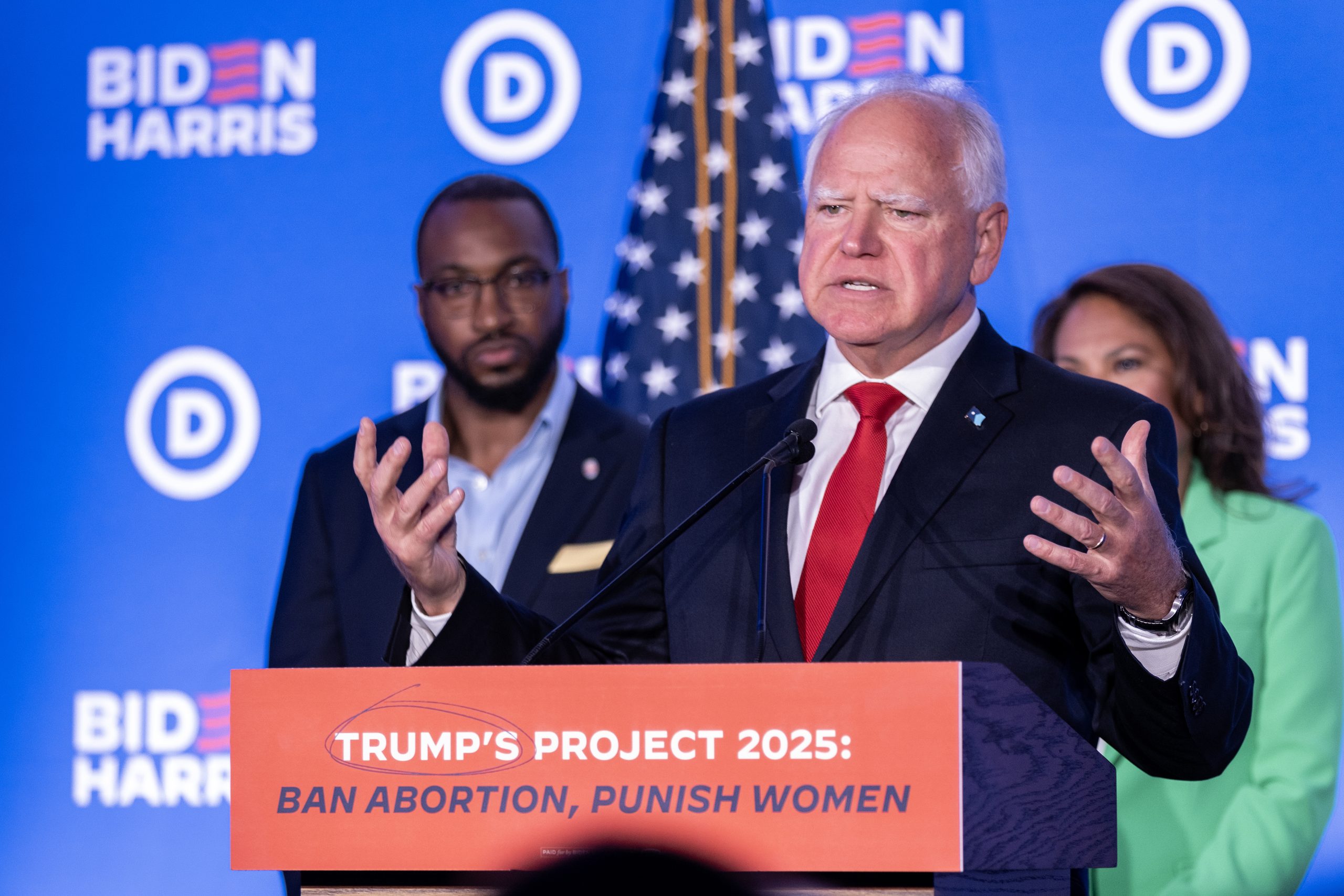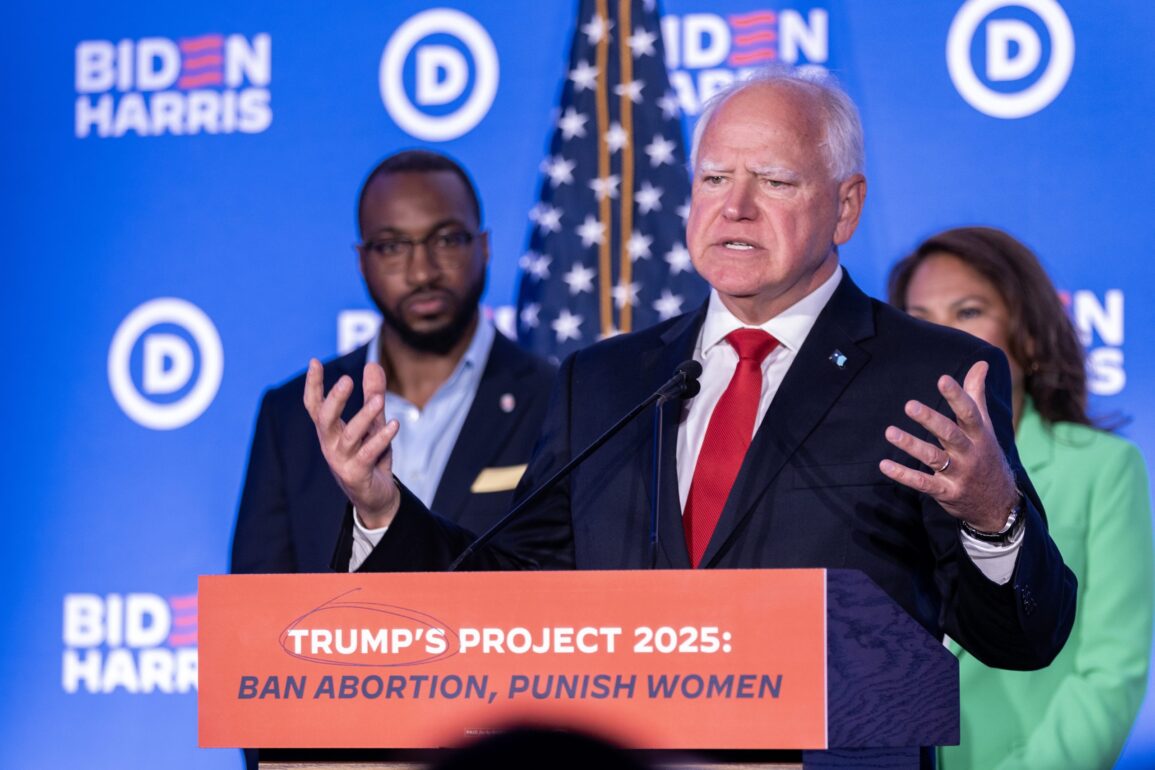
After a whirlwind of feverish speculation, Vice President Kamala Harris on Tuesday picked Minnesota Gov. Tim Walz as her running mate.
Harris’ selection of Walz is the most significant decision of her rapidly evolving presidential campaign. It comes as the two prepare to introduce the new Democratic ticket via a tour through seven cities in battleground states: Philadelphia; Eau Claire, Wisconsin; Detroit; Durham, North Carolina; Savannah, Georgia; Phoenix; and Las Vegas. (The Savannah stop is being postponed because of Tropical Storm Debby.)
Top of mind for Harris’ campaign is appeal. Her team hopes that, with the 60-year-old Walz on the ticket, the party can secure the demographics President Joe Biden might have drawn in, including older white voters and suburban white voters in swing states.
The campaign also has an eye toward attracting more moderate white voters who find former President Donald Trump and his running mate, U.S. Sen. J.D. Vance of Ohio, repellent but aren’t totally sold on backing a ticket with a Black and South Asian American woman at the top.
“She needs a middle-aged or maybe even slightly older white guy who’s got experience, and who brings credentials in a different way,” one source told NBC News as Harris’ search for a vice president entered its final hours.
“Someone who gives moderate Republican voters a place to go, like the [Nikki] Haley voters that are like, ‘God, J.D. Vance is terrifying, and Trump is horrifying, but I wasn’t really sure that Biden could do the job, and I’m not sure that she can do the job.’”
Another source put it even more bluntly: “Let’s just face it. There’s a lot of sexist, racist white dudes out there in America who don’t like Trump but just need a little extra validation,” the person said.
Yet, Walz, who armed Democrats with powerful messaging when he described Republicans as “just weird,” will likely have broad appeal, given his positions on key issues affecting Black communities.
For instance, Walz has been in the vanguard of protecting the sanctity of the ballot box. In May, he signed the Minnesota Voting Rights Act. The legislation revives private enforcement after an 8th U.S. Circuit Court of Appeals ruling last year limited who can sue under the Voting Rights Act of 1965, weakening a centerpiece of the Civil Rights Movement.
Additionally, the legislation makes it easier for college students to vote and eliminates prison gerrymandering by using an incarcerated person’s previous address instead of the address of their place of imprisonment for census counting.
“Democracy thrives when everyone’s voice is heard. Today, we’re ensuring a strong democracy by prioritizing accessibility and voter protections,” Walz said in a press release. “With this bill, we are breaking barriers that stand in the way of voting, protecting fair democratic processes, and paving the way for Minnesota to continue to lead the nation in voter turnout.”
Minnesota state Sen. Bobby Joe Champion, the lead Senate author of the legislation, echoed Walz’s sentiments. He underscored how much these protections mean, especially to long-disenfranchised Black communities.
“My mom — from Hooks, Texas — is still alive, and to this day, she votes in every single election, and she makes sure that her family does, too. That’s how crucial the right to vote is,” he told Capital B earlier this year. “And if anything is impeding that right, we must work diligently to overcome that barrier.”
Walz has advocated for a number of other causes that especially help Black communities. In July, he signed the African American Family Preservation Act, which bolsters protections for families confronted with separation in the foster care system. In February 2023, he signed the CROWN Act to combat the discrimination Black and brown people face in the workplace and at school because of their hair texture or style. And in 2021, he established the Missing and Murdered African American Women’s Task Force to address the violence plaguing Black women.
Propelled by the killing of George Floyd in 2020, Walz enacted police reforms after a lengthy struggle to get a bill through the state’s divided government.
He’s also been a proponent of safeguarding reproductive rights — including access to in vitro fertilization — and using his administration’s budget to invest in resources for Black Minnesotans.
“Without a shadow of a doubt or a hint of reservation, I am 100% certain that Minnesota Gov. Tim Walz is the best option to be her vice president. He knows how to give unwavering support to Black women. He is not just an ally; he is our accomplice,” one person wrote for the Star Tribune.
This isn’t to suggest that Walz is a wholly uncontroversial figure. His administration has been criticized for failing to prevent a massive pandemic fraud case. A legislative audit this year found that dozens of people affiliated with a nonprofit plotted to steal $250 million from government programs designed to feed hungry children.
That said, Harris’ team trusts that, with Walz as the pick for running mate, the party can continue to build on the rush of enthusiasm it’s enjoyed since Biden’s abrupt departure from the race a couple of weeks ago.


